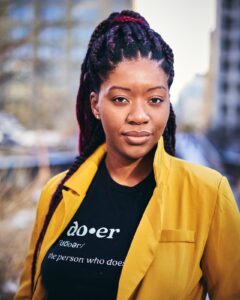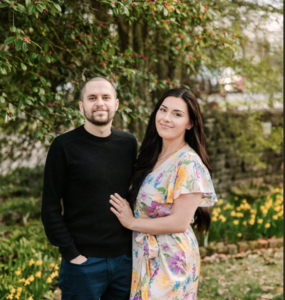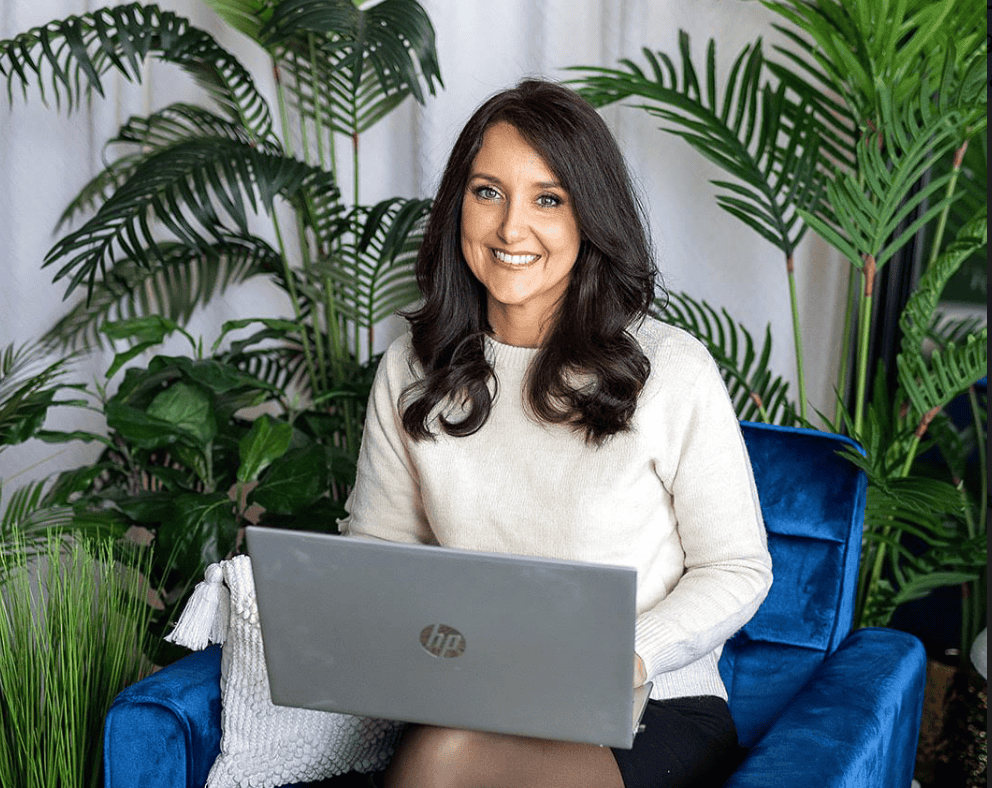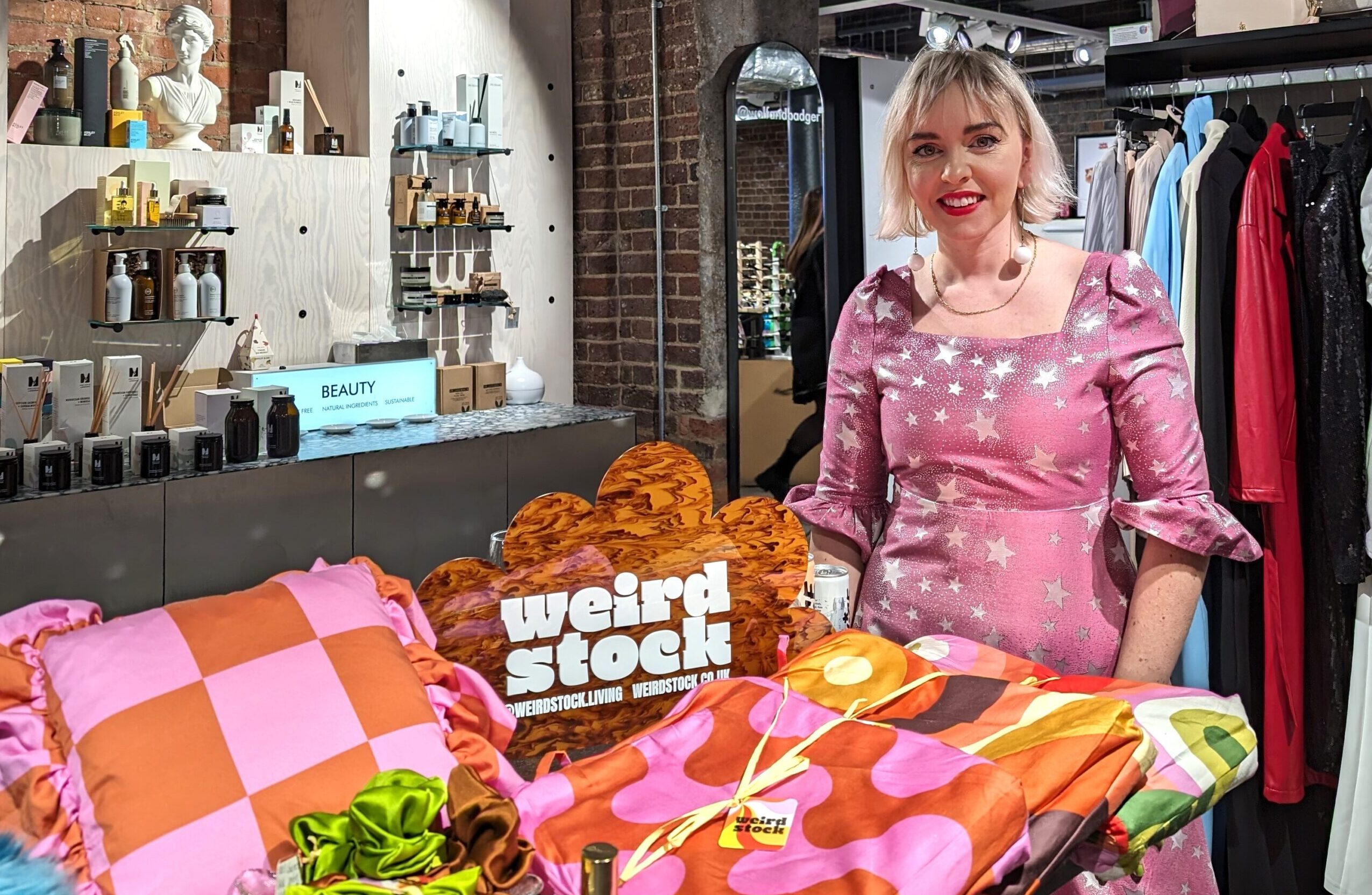Stephanie Affinito, the passionate advocate for the transformative power of books and writing, invites us into the enchanting world of A Lit Life. Through her blog, podcast, and coaching endeavors, Stephanie delves into the profound impact of literature on our lives, weaving together stories of personal growth, healing, and empowerment. Her journey from a childhood immersed in books to navigating through life’s challenges with the solace of literature showcases the profound influence of reading and writing on our well-being. Join us as we explore Stephanie’s inspiring vision for A Lit Life and her commitment to fostering restorative reading practices for a brighter, more connected future.
What inspired you to start A Lit Life? Could you share the story behind the creation of your business/project?
Books and reading have the power to transform our lives.
When we explore the themes of the book in our own lives, from love and relationships to baking and gardening, magic happens.
Books leave us a better person than when we started. Plus, if you pair that magic with daily notebooking and journaling, the effect multiples.
I promise.
I’ve learned that what I pay attention to grows stronger over time and paying closer attention to my reading and writing life was making my actual life better.
I felt less alone.
I learned new things.
I tried new hobbies.
I got healthier.
I broadened my ideas of what was possible.
I gained more empathy.
I learned how to be a better person.
That’s why I created my blog and podcast: to explore the power of restorative reading and writing with others and show how we can mix together books, notebooks, intention and creativity to create a life we love.
In what ways do you believe reading and writing can impact and improve our lives? Can you share any personal anecdotes or success stories from your experience?
When I look back at my history as a reader, I am drawn to the stories that taught me what reading is and why it matters in my life. While I don’t have strong memories of being read to as a child, I do have vivid images of the books I was surrounded by. One of those books was The Monster at the End of this Book by Jon Stone.
I distinctly remember sitting with this book feeling amazed that Grover was talking to me, inviting, even daring, me to join him in the pages of the book. For those that are not familiar with the book, it is told as a first-person narrative. Grover speaks directly to the reader, begging for help to avoid the monster and giving orders that readers ultimately disobey, much to his dismay.
Early on, I learned that reading was a transaction, a lived experience with active participation and control over the fate of the story, a lesson that would impact the trajectory of my reading life. Armed with the expectation that reading would always be a highly experiential and personal act, I approached books as though they were pieces of my life, and devoured them throughout my childhood. Books like Ramona Quimby and The Mouse and the Motorcycle by Beverly Cleary, Number the Stars by Lois Lowry and of course, The Babysitter’s Club by Ann M. Martin were dog-eared and well-loved.
But I never knew just how much power they held until I became quite sick as a teenager. I spent months in bed, weeks in the hospital and years out of school.
Books became my lifeline. They brought me the friendships I’d lost while I was sick, the experiences I’d missed while stuck at home and the possibility of a future that was better than my present. They gave me access to a world that was bigger than my own.
But it was more than that.
They gave me hope.
The novels I read taught me how to act like a proper teenager, even if I couldn’t carry those actions out. The poetry I read gave me an escape from the pain and frustration of a chronic illness. The non-fiction, health and personal development texts armed me with information and gave me the strategies I needed to make myself well again.
Eventually, I did, and my reading shifted.
It shifted from a desperation to live life through the pages of a book to an imagination for what was possible for my actual future. Books shifted from tools to escape my current reality to tools that helped me grow into it, following me into young adulthood and eventually, motherhood, too.
When my young daughter faced a difficult situation on the bus, I shared what Junie B. did during her difficult bus situation. When my son and I were driving through a particularly harsh storm, I compared our experience to Dexter’s in Lauren Tarshis’ I Survived The Joplin Tornado. When I needed a symbol to remind myself and my family of what we were capable of, I chose the octopus, just as Zoey did in Ann Braden’s The Benefits of Being an Octopus.
Books were my friends, books were my escape and books were my teaching tools.
And fortunately, they’d become my lifeline once again.
As my illness as a teenager returned in a new form in my forties, I found myself once again feeling like a lost child who felt sick, felt tired and felt like giving up. So I did the only thing I knew to do to bring a small sliver of control to my situation.
I read books.
No, I devoured books like I never had before.
But this was different. This time, I had a history with how books could heal. This time, I knew how to look for the lessons in the pages of the book and capture them. This time, I knew it wasn’t just the reading that soothed me, brought comfort and ultimately, brought me good health.
It was the rituals and routines, too.
Back when I was sick as a teenager, I mustered up the energy for my most favorite excursion: the weekend trip to my local library with my father and younger brother. We’d talk in the car, check out stacks of books (DVD’s for my little brother) and end up at a local cafe that served the most delicious sourdough bread slathered with butter and bright strawberry jam. Books, paired with comfort, were healing.
And when I was in the hospital too sick to read by myself, my home tutor would visit me at lunchtime to read aloud and so I could reconnect with the characters that had become my only friends. Books, paired with connection, were healing.
Later, a bit more bright-eyed, I’d learn the power of annotation, of marginalia and of hundreds of sticky notes to mark my thinking so the book could make its mark on my life. Books, paired with action, were healing.
Books weren’t just for reading, they were living.
Defined simply, bibliotherapy is the act of using books and literature to improve our lives through the lessons learned in the pages of a book. Essentially, we can use books to grow through what we go through. All we need is a bit of introspection, the right books, a few mindful tools and a willingness to shift.
As I approached this here-we-go-again stage in my life, once again tackling a chronic illness that knocked me down, I leaned into books to help me grow through what I was going through (and yes, I still am).
Books like Broken in the Best Possible Way by Jenny Lawson and Between Two Kingdoms: A Memoir of a Life Interrupted by Suleika Jaouad gave me the empathy and inspiration I needed from others who succeeded in going through hard health challenges.
Characters like Olive from Natalie Lloyd’s Hummingbird and Joe from Bubble written by Stewart Foster reminded me that others were fighting battles harder than mine. And since these characters were children, they spoke directly to my inner child who still needed some healing, too.
I also explored research and science to explain what was going on inside my body and mind. Books like The Autoimmune Solution by Amy Myers and Dr. Amen’s You, Happier explained why I was feeling what I was feeling and gave concrete strategies for how to help myself feel better.
Now, I’m not saying that simply picking up a book and reading it will make your life better.
Well, actually, that’s exactly what I am saying.
Picking up a book, actively reading to glean lessons for your own life, mixing in a few notebooks to plan and track your progress and taking action, will. They might not cure what ails you, but they can help you cope with it.
From the physical, mental and cognitive benefits that come simply through the act of reading to the emotional benefits that come through a careful exploration of how to connect what we find inside the pages of a book to our actual lives, reading just might be what saves you.
I know, because it’s still saving me.

As someone who champions the power of literature and writing, what do you envision for the future of A Lit Life? Are there any exciting projects or initiatives on the horizon that you can share with us?
I’ve spent my entire career as a literacy educator, first teaching students and then coaching teachers on how to create joyful literacy communities.
My own personal health challenges and journey of learning have brought me to an exciting new intersection of reading, writing, wellness and creativity, something I call bookology. I am particularly interested in embracing, teaching, coaching and sharing restorative reading with others.
Typically defined, something that is restorative serves to restore us to consciousness, vigor, or health, such as restorative movement, yoga, meditation, art and/or creativity.
Restorative reading is a particular kind of reading that soothes the body, sparks the mind and connects readers together in meaningful communities to make life better. Put simply: it’s the kind of reading that truly matters to who we are, who we become and how we feel.
My dream is to bring restorative reading to others through workshops and courses, onsite and virtual restorative reading sessions, personalized coaching and retreats. Think breathing and meditation, reading books prescribed for each of us and conversation and journaling to help us take inspired action.
That is my current dream.
A Lit Life offers a range of services such as weekly podcast episodes, book apothecaries, workshops, and coaching. How do you balance these different aspects of your business/project?
I learned early on from a trusted mentor to simply follow and joy and do what you love…the rest will follow.
Each time I think about an offer I want to put into the world or a business idea I want to add to my plate, I ask myself: Would I do this if I weren’t going to make any money?
If I can say yes, then I go for it. Why? Because in the end, I want my business to help me lead the kind of life I want to live, not the other way around.
Plus, the passion and joy I experience in doing these things shines through and that is the best marketing there is.
Instagram: http://www.instagram.com/AffinitoLit
Facebook: http://www.facebook.com/AffinitoLit
Twitter: http://www.twitter.com/AffinitoLit
Threads: https://www.threads.net/@affinitolit
Patreon: www.getliterate.co






